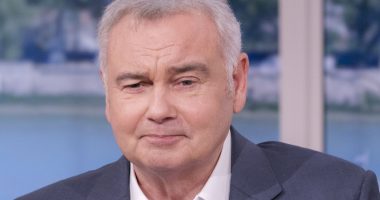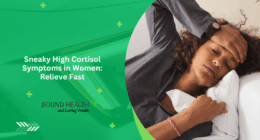How Emma Chamberlain Diagnosed With PCOS. The YouTube star has openly discussed her health issues. The 23-year-old social media influencer recounted in a Vogue video the surprising location where she received her diagnosis of Polycystic Ovary Syndrome (PCOS) and shared how it has impacted her life since then.
‘I was diagnosed with PCOS at the hair salon. While I was having my hair washed, a woman sitting next to me asked, ‘Do you have PCOS?’
I replied, ‘I don’t know. My mother has PCOS, along with endometriosis, and she has faced numerous challenges,’ Chamberlain recounted in the video posted on April 22.
The woman suggested, ‘I believe you have PCOS.’ Chamberlain noted that the woman could tell by the acne on her cheeks at that time, mentioning that this encounter occurred over a year ago. ‘As it turns out, she was an OBGYN who diagnosed me with PCOS.’ She concluded, ‘Honestly, it has significantly altered my life.’

What is PCOS? Breaking Down the Hormonal Puzzle
Polycystic Ovary Syndrome (PCOS) is a hormonal disorder where small fluid-filled cysts develop on ovaries, often accompanied by irregular ovulation and excess androgen production. Symptoms range from acne and hair thinning to anxiety and fertility challenges. Affecting 1 in 10 women of reproductive age, its variability makes diagnosis elusive—many, like Emma, endure years of unexplained symptoms before getting answers.
The Salon Diagnosis: A Moment That Changed Everything
While getting her hair washed over a year ago, a stranger—later revealed to be an OB-GYN—noticed Emma’s acne and asked, “Do you have PCOS?”. With a family history of the condition (her mother has PCOS and endometriosis), Emma initially brushed it off but soon sought medical confirmation. This serendipitous moment highlights how overlooked symptoms like cystic acne can be critical diagnostic clues.
Life After Diagnosis: Hormones, Healing, and Self-Rediscovery
Post-diagnosis, Emma began hormone-regulating medication, which dramatically improved her skin, menstrual cycles, and hair thickness. “My periods are so much more chill. It’s like I’m coming back to myself,” she shared. Her journey underscores the importance of targeted treatment—addressing root hormonal imbalances often yields better results than superficial fixes.
Why Emma’s Story Matters: Breaking Stigmas Around Women’s Health
By sharing her experience, Emma spotlights how dismissive healthcare systems often force women to normalize symptoms like irregular periods or anxiety. Her openness fosters dialogue about PCOS’s mental health toll, from depression to fertility fears. It also emphasizes the value of community—knowing others, like her mother, navigate similar struggles can reduce isolation.
Balancing Health and Fame: Emma’s YouTube Reflections
Amid managing PCOS, Emma grappled with her identity as a YouTuber, confessing she once felt trapped by the label. “I realized, wait, I love being a YouTuber. This was my dream—why self-sabotage?” she said. Her transparency about burnout and self-doubt resonates with creators navigating public and private battles.
Don’t Miss | Real Housewives’ Teddi Mellencamp Says All Tumors Have ‘Shrunk or Disappeared’








